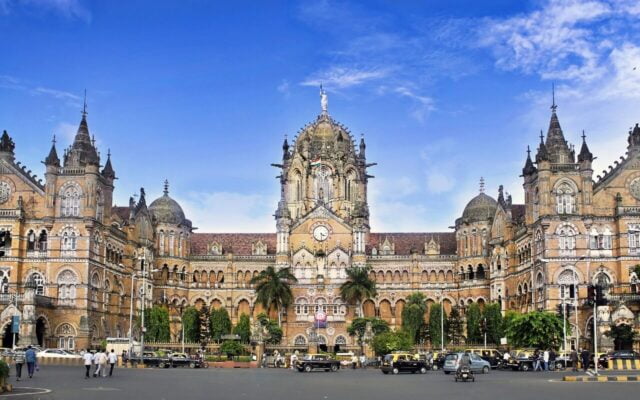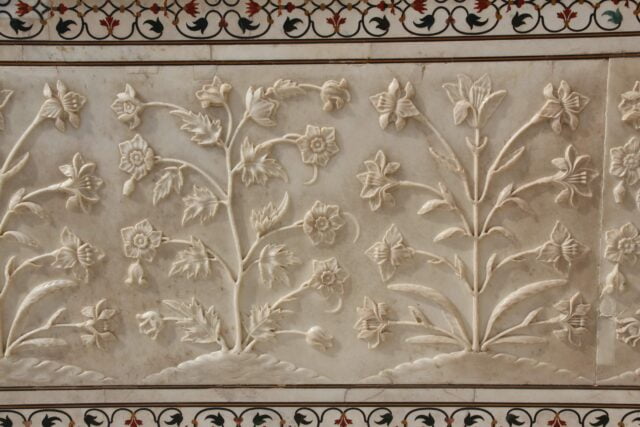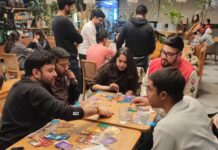By Vidya Arasu
Looking at historical events on a timeline, this is how it has been on average irrespective of the country you are from:
- Kingdoms with warriors
- Formal education systems and industrialization
I mean, I did say “on average”.
Kingdoms didn’t “mysteriously” disappear, nor did governments “inevitably appear” in their place.
People are getting wiser, and having a ‘conscious and constant thirst for knowledge’ has become a strictly followed unwritten rule. Because of this, millions of people, despite their mental processing capabilities, are forced to study under a literal ‘one-size-fits-only-3-of-my-friends’ educational system.
It may seem like I may be going a little out of topic switching between political developments and institutional knowledge, but hear me out.
Macro-level peer pressure
There are a lot of things that can be spoken about under this category, like medieval rivalry and conflicting religious agendas. Let’s ease it down to something much more simple, like European colonialism.
Over and over, guaranteed till our 10th grade, we kept learning the different aspects of colonialism and resistance from colonies from our history textbooks.
We focus on the good things too- like how India retained its railway systems, parliamentary form of government, government administrations, and most important of all- tea consumption culture (duh!) from the British. But is that all? Let’s go back a little more.

During the era of the Mughal invasion, the invaders gave us their own little gifts while leaving (in a less painful process, thankfully)- Taj Mahal, the intricate carved marble artworks that came with it, and biryani! But is that all?

It came with other personal expenses that cost almost every citizen their peace of mind every day, till this day- their need to be something they ARE NOT.
The obvious result of colonialism is subconsciously deeming the colonisers as “superior”. And that’s good in some cases.
We still welcome new technology from the whites, we have added those delicious English breakfasts to our palate of many cuisines, we have a constant wish of fitting in with the Mughal and European beauty standards of having fair skin, sharp nose, and a visible jawline, we- wait what?
That’s peer pressure on a macro level. The world is one big public school with students from various backgrounds.
We Indians “unfortunately” are collectively born with Indian features. Instead of loving ourselves with our kin, we are always under the constant stress of dressing and beautifying ourselves in the way people who have dominated us.
You may not think so, but it is what it is. The elders in your family wished you had straight hair, not the media, you say? Sike.
What about their elders? Did they tell the same thing to them? They did? Oof. Summon your ancestors who lived before the Mughal era. Did they curse you for eternity for asking such a ridiculous question for which the answer is obviously no? I’m sorry.
Read More: Study Shows That India’s Teen Pregnancy Has Been Dropping Steadily For The Past 20 Years
Impact of Beauty Standards till date:
Only the extremely ‘colonial-standard-fitting’ beautiful visibly get on to gain fame in British and American media industries, maybe with a hint of coloured skin to emphasize the ethnicity. Basically, we want what British and American media demands (this, in turn, has become Indian media industry demand too). Think about it.
No one is putting peer pressure on us though. We ARE the peer pressure. Our minds, no thanks to psychology, have been so rottenly moulded for decades that we associate intelligence with conventional beauty.
Politics and good economy have forever been a game won only by the fair-skinned, EVEN AFTER COLONIALISM, because we still believe the economical and political decisions taken by them are always right and just.
Think again. Give me an exhaustive list of world-famous coloured-people from the top of your head who you think have made themselves prominent in the fields of science, brought about revolutionary changes to build a modern world, or has even thought of revolutionary ideas.
Wait, did you say Sundar Pichai? Mahatma Gandhi? Martin Luther King Jr.? Okay, okay.
But can you also give me a list of such people, whose ancestors were involved in conquering foreign lands? How hard was it to make this list compared to the previous question?
So are we coloured people slacking off? No. Will it take more effort for us to be recognized if we do something as equally extraordinary as Steve Jobs? Yes.
Switching it up a bit, let’s briefly talk about education.
Is our education system failing compared to European classrooms to give us decent standards of education? Absolutely. So here is my question:
Is it absolutely necessary to feel peer pressure from the world in terms of beauty, fashion, cuisine, number of prodigies, world leaders and scientists?
Or is it more necessary we feel pressure about our low standards of education and do something about it in a collective instead? A food for thought for you and your friends.
Image Credits: Google Images
Sources: Wikipedia, Geeks On Coffee, The Indian Express
This post is tagged under: Macro-level peer pressure, peer pressure, colonialism, colonialism india, western standard, india, peer pressure india, indian education
Other Recommendations:
The Repulsive Ascent Of Social Justice Warriors- Featuring Snowflakes








































